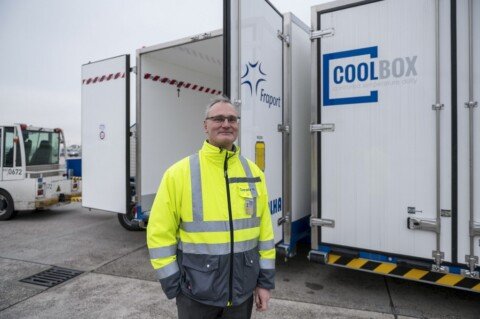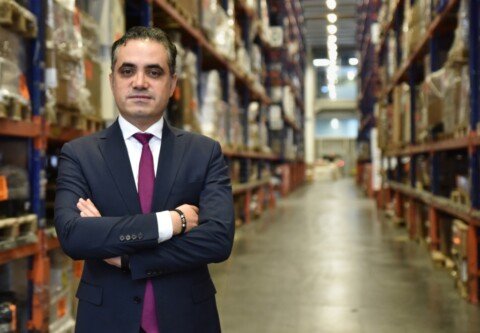In the post-pandemic world, consistent disruption will be the new normal and organisations that can respond with agility to adapt will survive in the long run by creating a sustainable competitive advantage for themselves. In this never-ending pursuit of new and novelty, brand strategy becomes an inherent part of business success because it combines a deep understanding of customer psychology. Pradeep Bakshi, Managing Director and CEO, Voltas, in an exclusive conversation with Ritika Arora Bhola, highlights how brands can achieve a coveted dominating spot on the market, and need to keep recreating experiences that showcase brand personality and resonate with the customers. Voltas’ pragmatic and data-centric approach, focussed on consumer trends and economic opportunities have enabled them to ride on informed decisions, strategy, and investments and chart their own future growth in a disruptive market.
With the emergence of second wave of COVID-19, do you think the demand for overall home appliances category will continue to rise? If yes, what are the factors that will fuel this demand?
With the second wave of pandemic hitting hard, people are looking at creating the right infrastructure at home, with cooling products and white goods; that add convenience to their lives and reduce the burden of household chores. Owing to the hybrid work culture and an extended summer, we are anticipating the demand to come back in the cooling products segment, once the wave settles down, and lockdowns are eased. Interestingly, due to this continuation of work-from-home culture, we are seeing increased demand for multiple cooling units in the same house. We also anticipate an uptick in demand for new categories like microwave, dishwashers and air purifiers, as people continue seeking ways to make their lives safe and comfortable during this pandemic.
Amidst the current uncertain scenario, do you have a hard time accurately forecasting the demand/supply for new products?
These are unprecedented times and it is extremely difficult to provide forward estimations, given the situation where most states are under partial or complete lockdown, and repeated extension of lockdowns across states. The summer season has set in, but due to the lockdown scenario it is difficult to estimate. As soon as restrictions ease out, we will spring back in action like we did last year after the first wave. We can also expect the demand for need-based consumer durables, including home appliances to remain high throughout the year.
As a responsible Tata brand, at Voltas, we have always strived to ensure that our services remain focussed on the evolving needs of our consumers, and the nation’s needs at large. During these unprecedented times, the most important priority for us has been consumer centricity, powered with the next level of digitisation. Hence, we have incorporated a variety of health-centric features in our new range of white goods. Promptly responding to the situation, last year, we introduced a new range of ‘Maha Adjustable PureAir ACs’ that have state-of-the-art UVC LED system, which quickly disinfects the indoor air. We also launched a range of UV based air, duct and surface disinfectant solutions, and received a positive response. And most importantly, all these products have been made available to the consumer, despite a challenging environment last year.
What are the key supply chain practices to strengthen logistics management functions, Voltas has particularly focussed on amidst the current crisis?
To address the increasing demand for consumer durables during the lockdown period, we have taken some key steps like shifting stocking focus to high demand goods, penetration in tier II and III towns, and less affected zones. As a part of our ‘Smart Thinking’ philosophy, our distribution network has grown 15 times over the last ten years, to more than 22,000+ consumer touch points across the length and breadth of the country. We have also opted for an omnichannel marketing strategy and introduced new brand shops and experience zones to tap into mini-metros and tier II markets, where the demand for white goods has been on the rise. This has strengthened our market leadership by bringing us closer to our customers. We also have the highest distribution reach, giving us penetration in tier II, III and IV towns. Our sales are higher than the industry benchmarks in these markets, and this can be attributed to Voltas’ strong distribution network. As a result of these efforts during the pandemic, besides leadership in the main channel, we are also the largest online brand for ACs, besides being overall leaders in this category.
We are also focussing on increasing our manufacturing capabilities at our existing plants in Waghodia and Pantnagar. Our Voltas Beko plant in Sanand has ramped up production significantly, to meet the growing demand for Direct Cool Refrigerators. Despite the lockdown and limited selling window, Direct Cool Refrigerators were sold in large volumes during the year. Our products continue to be accepted well in the market, and we are happy to evidence significant demand pull from the trade. Our plans to set up an additional manufacturing facility in South India for ACs will help secure our supply chain against future uncertainties.
What efficient strategies Voltas has adopted for building a responsive supply chain to support the company’s network and projects?
We are closely monitoring the second wave of the pandemic and its impact on the cooling products and home appliances category. As market leaders with the highest reach in the country, we are prepared to deliver for specific channel formats, both offline and online, and have adopted a flexible approach towards fill-ins at the store level.
At Voltas, we have always strived to ensure that our services remain focussed towards consumers and the nation’s needs at large. We are well prepared to handle this wave of the pandemic efficiently.
Learning from the first wave, we have taken many steps in terms of material handling, tracking and storage. We are also attempting to deliver to the customer directly from the warehouses or factory, considering the constraints—markets being closed and limited space availability in dealer warehouses. We are running operations in close coordination with our channel partners, utilising the relaxation in timings of the lockdown. We are also extending support to channel partners in terms of transportation in order to avoid any delay in delivery.
With resilience now more than ever being a critical requirement in supply chain operations, new learnings have driven organisations to draw novel strategies. That said, how agile are the human and technology-led approaches supporting your supply chain?
We have an extensive supply chain, with high quality suppliers which ensure seamless operations. We engage and collaborate with our suppliers for knowledge enhancement, process improvements and new product applications. We consciously depute our own staff to OEM supplier factories to secure product quality.
At Voltas, we might have to tap into certain alternate sources of supply if required, apart from expanding our own manufacturing capability by setting up additional production facilities. Improved focus on value engineering, cost innovation, customer service, logistics and digital initiatives will help Voltas sustain its market leadership position in a challenging environment. In areas of partial lockdown, consumer durables and electronic appliances are not treated as essential commodities; this is creating challenges in delivery to customers and the trade.
When it comes to industry 4.0, the top trends are centered on business performance, personalised products and a combination of marketing excellence and intelligent customer service. How does this cater to your supply chain planning process and result-oriented improvements?
Our forecasting models are now based on sell-out data, in the current scenario. We are also keeping additional stocks of fast moving SKUs at the branch level. We are also doing direct billing from factory and central warehouse. These are some of the smart initiatives we have adopted to tackle the situation.
Reports suggest that Voltas is investing into warehousing and cold storage facilities for storing COVID -19 vaccines. How do you ensure safe, reliable and efficient storage, handling, logistics and supply chain operations for your diverse products?
For the current vaccination drive of the government, related to Covaxin, Covishield and Sputnik V, Voltas has a range of solutions to serve different requirements. We have Cold Rooms, in different sizes, for positive temperature (+2 to +8°C) and negative temperature (-18 to -20°C). We have Deep Freezers which can operate for the range of -15 to -20°C. And we also have Visi Coolers and Chest Coolers for the positive range of +2 to +8°C.
We are already in the process of importing ultra-low temperature deep freezers (-40 to -86°C) to meet the requirements of other vaccines like Pfizer. We are importing these specialised Deep Freezer models in 300 litre capacity and above, and have tied up with our international partners. We will be ready to cater to this requirement by the time these vaccines arrive in India around August 2021. We are also simultaneously developing specialised Ice-lined Refrigerators and Deep Freezer models for standard (+ve) and (–ve) temperature range.
The industry is broadly divided into 3 segments: > -20°C, -20 to -40°C and < -40°C. The third segment is niche, and as of now, the industry is importing this segment.
Besides regular cold chain solutions, we also have IOT-enabled cold room controllers, which is UL & CE certified and its in-built data logger complies with 21 CFR Part 11 as per FDA guidelines. Within these specialised solutions, critical parameters can be monitored and controlled centrally using smart phones and Wi-Fi.
How is your company digitalising its logistics and supply chain processes? Kindly elaborate on the world-class infrastructure and advanced technologies deployed for enhancing efficiency and efficacy?
We have already taken several initiatives in this direction—connecting suppliers and vendors through Electronic Data Interface (EDI), other portals which help in giving real-time inventory and sales, and mechanisms capable of generating auto fulfilment of orders.
We also follow the system of E-PODs to get instant confirmation on material delivery. We have GPS-enabled vehicles to keep real-time tracking of material movement.
We are also working on smart demand forecasting tools for a more accurate forecast. Advance WMS and TMS modules are the some of the recent initiatives we have taken.
How do you see the year 2021 for the Indian consumer durable logistics market?
The pandemic has led to loss of business during the peak season (April-May) for almost two years in a row. We can expect disruptions in supply chain (due to constraints in interstate movement) to continue until temporary lockdowns are eased out and majority of the masses are fully vaccinated. Till then, it’s a wait, watch, and divert resources policy for most consumer durable brands along with an increased focus on the online channels.
With COVID-19 related restrictions imposed by states, hitting sales in the ongoing quarter, we are looking to capitalise on the right opportunities going ahead like extended summer and a brighter festival season







